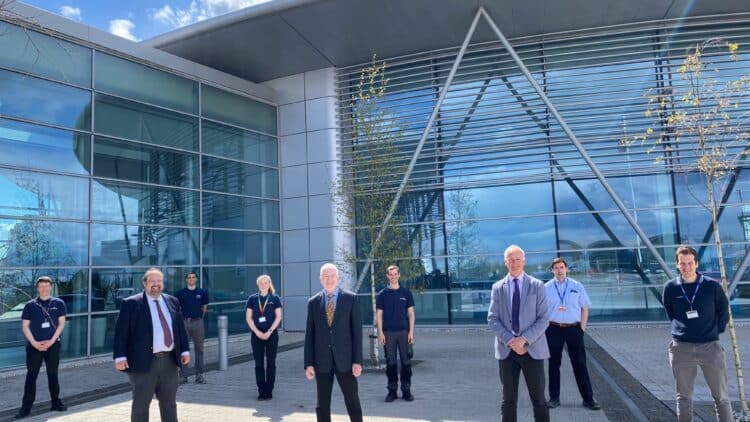New sustainable safety razor could save thousands of lives
NMIS helped Brengor Innovation design produce over 1,000 sustainable razors a day at a cost competitive with traditional products.

Key points
Accelerated product development
Accelerated Brengor Innovation’s product from concept to roll out at test sites
Sustainable personal grooming
Innovative new products for the general market, encouraging more sustainable and safer personal grooming
60,000 incidents of self-harm occur in UK prisons and mental health hospitals each year, many using razors intended for grooming. This is because traditional razor heads can be bent or manipulated to expose dangerous sharp edges. To help saves lives, former prison officer and owner of Brengor Innovation, Darren Haley, developed a new 100% recyclable safety razor that avoids this issue. The new product has also been designed with sustainability in mind by incorporating recyclable materials and a blade re-sharpening service, saving carbon emissions for personal grooming.
NMIS’ Advanced Forming Research Centre team helped Brengor Innovation design processes that can produce over 1,000 units a day at a cost competitive with traditional razors. The team created sets of digital simulations to test the design at different temperature and strain rates, determining the best forging process for the product. This enabled the product to move from concept to prototype stage, with active testing the next step. With the NMIS-AFRC scale-up plan in hand, Brengor Innovation is well placed to supply secure environments with cost-effective and sustainable safety razors after testing.

Darren Haley, Owner, Brengor Innovation said:
As a former senior prison officer, I have seen first-hand the injuries and damage a prison razor can inflict. The harm reduction razor has the potential to significantly reduce violence, self-harm and suicides in secure environments such as prisons and mental health hospitals. The primary challenge is using methods suitable for mass manufacturing and reducing materials waste. The NMIS-AFRC has worked very hard to produce evidence that demonstrates the viability of hot forging as a method of mass production. I look forward to working with them on the next stages of the pathway to market.
Can we help?
"*" indicates required fields
Related case studies
View more
CASE STUDY
AWESIM results for nuclear welding
Nuclear AMRC helps AWESIM consortium develop a game-changer for fusion welding, enabling quicker delivery at reduced cost and waste.
6 February 2023

CASE STUDY
Digital Engineering Technology and Innovation
Through DETI, the NCC helped businesses address common challenges to digital transformation, with 32 projects creating or safeguarding 87 jobs
6 February 2023

CASE STUDY
Battery of the future powering South Yorkshire investment
The AMRC helped to bring the Ultimate Battery Company to South Yorkshire, along with future economic benefits to the region and a positive environmental contribution to global net zero targets
6 February 2023